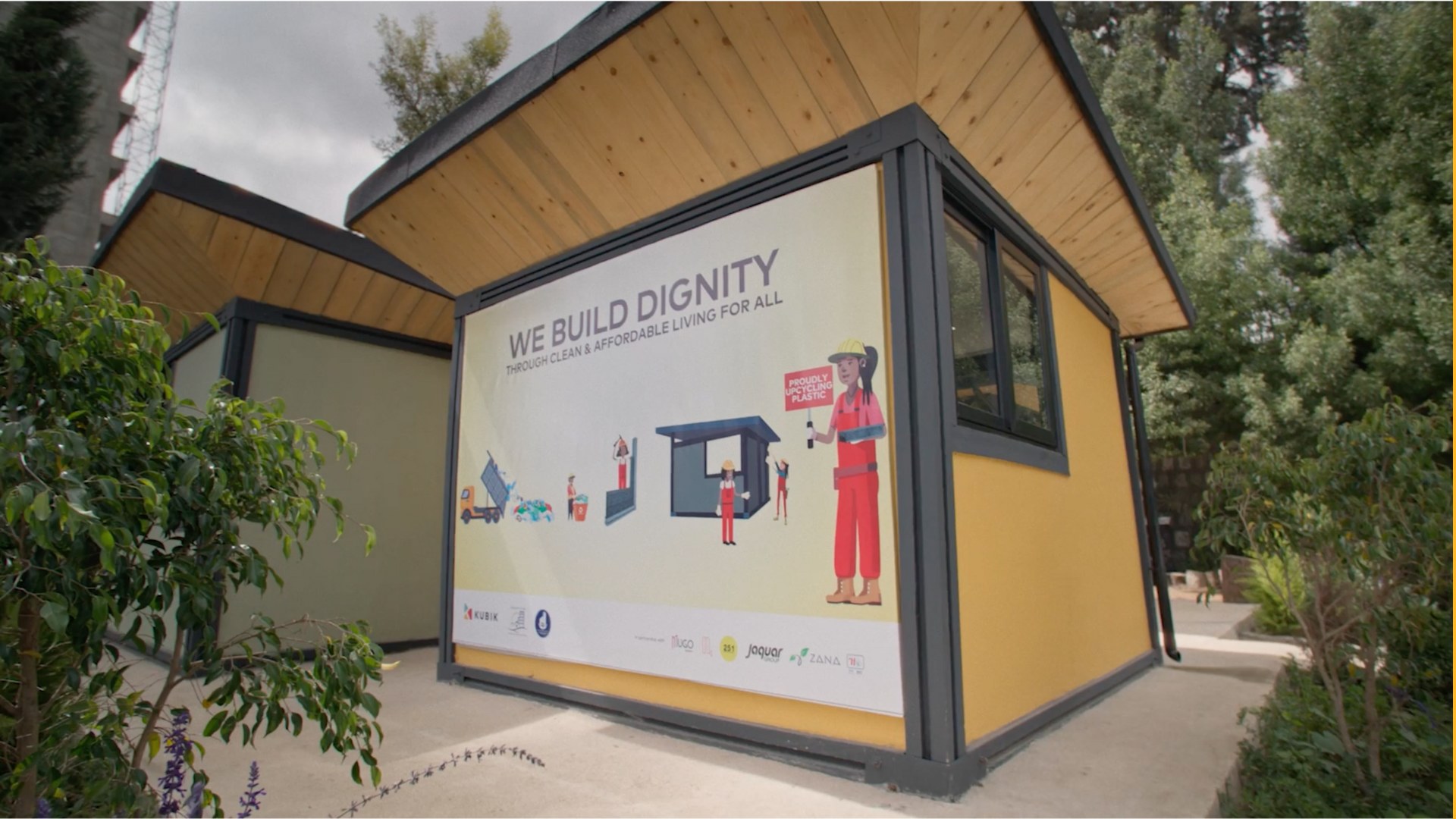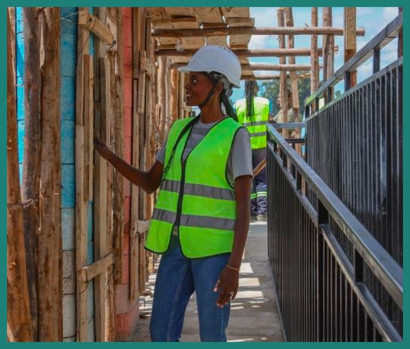

A $2.8 billion opportunity to attract investors with startups like Kubik and BillionBricks, promising sustainable housing and significant environmental impact, poised as a climate-resilient market.
 By Roland Pearson, Executive Director & Vice President, Terwilliger Center for Innovation in Shelter
By Roland Pearson, Executive Director & Vice President, Terwilliger Center for Innovation in Shelter
It’s June 2023. A startup closes a seed funding round at $3.5 million[1], successfully attracting a cohort of investors, including Plug and Play, GIIG Africa, and Andav Capital. The tech venture not only eyes a $2 trillion global market but is also laser-focused on addressing the climate crisis. What’s surprising about this story is that this tech business isn’t a digital solution and isn’t even operating in a developed market. Kubik is a manufacturer of recycled plastic waste bricks in Ethiopia. Some might say that Kubik is unique, a one-off bright spot in a sea of tech investments.
But just one year earlier, venture BillionBricks successfully closed their own US$2.45 million seed funding round to scale up net-zero homes integrating solar systems in Southeast Asia[2].

They are both front-runners. BillionBricks and Kubik graduated from a recent Habitat for Humanity ShelterTech accelerator program, joining over a hundred other ventures that have received capacity-building support, catalytic grants, and patient capital in recent years. These two housing-focused startups aren’t alone. They are part of a growing field of sheltertech startups that are ready for investment to support affordable, green housing solutions.
And investors in other sectors, especially climate tech, are also taking note. We know that climate tech is taking a growing share of startup venture capital, buoyed by an ongoing influx of first-time funders who continue to invest in large numbers.
Investors love to unearth an underinvested sector with massive opportunities, and new research from Habitat for Humanity’s Terwilliger Center for Innovation in Shelter suggests that there has been a gap of up to US$174 billion in climate tech investments specifically for the built environment over the last ten years.
The world is waking up to the fact that the built environment accounts for 37% of global greenhouse gas emissions, meaning we will never meet our climate targets if we continue to ignore the built environment. This includes hard-to-abate, carbon-intensive adjacencies like the cement and steel industries. While the current appetite for clean energy solutions remains critical to keep our sights on the 1.5 degree target set out in the Paris Agreement, we are encouraged by growing awareness of the need to transform industry and manufacturing across the board radically.
Small and growing businesses are crafting ways to address the challenge in their own backyards, and this is cause for celebration.
Kubik saw the mounting plastic problem in Addis Ababa and decided to do something about it while creating jobs, addressing housing poverty, and decreasing plastic pollution. BillionBricks saw the opportunity to help remote communities with poor living conditions by building micro-grids that generate local income, reduce dependence on diesel generators for energy, and build climate resilience in one of the most typhoon-prone regions of the world.
This is an area where traditional market misinformation and preconceptions have driven a narrative that investing in products for the low-income segment is unprofitable. Yet 2.8 billion people are already investing part of their earnings to improve and future-proof their homes. And they will continue to invest it over time.
This largely untapped market is ripe for value creation by investors, entrepreneurs, support organizations, and small and growing sheltertech businesses. Sheltertech innovations have the potential to improve climate resilience through construction while generating reasonable financial returns for investors and other service providers. That makes sheltertech solutions not only ripe for further innovation, but also THE next investable market.
[1] Plastic upcycling startup Kubik closes $3.34M seed to scale production in Ethiopia
